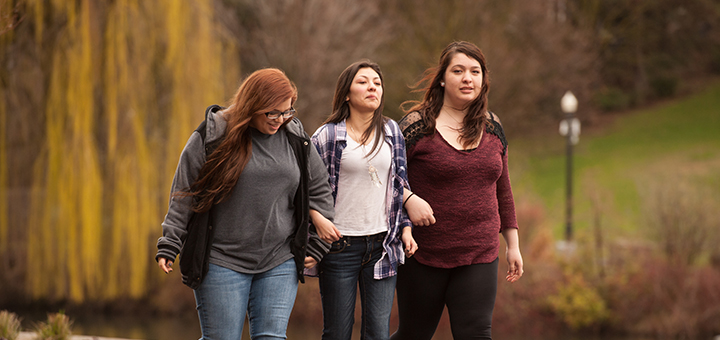Leading up to every violent incident (be it intimate partner violence, domestic violence or sexual assault) there are all kinds of behaviors, words, and actions that can normalize and condone violence in a community. The good news is, if we all view ourselves as engaged bystanders and learn strategies to speak up and challenge the social norms that contribute to violence, we can all play an active role in ending intimate partner violence, domestic violence and sexual assault.
Here are some common “bystander scenarios,” with tips to help you be an engaged bystander.
You’re at a party or out drinking. Someone nearby has had a lot to drink and is being harassed or manipulated by someone you think may do something physically harmful to them. What do you do?
Identify why you’re worried: If you see something that makes you uneasy, identify the behavior that worries you. Is the person you are concerned about drinking too much, and are you afraid they might not be able to say no? Are you afraid that they won’t really be capable of giving consent?
Consider whether to intervene: A situation doesn’t have to be dangerous for you to step in. Ask yourself, “How might the situation affect the people who are involved? What’s the possible outcome?”
Enlist allies: This is key. There’s comfort in numbers. Enlisting allies, like a mutual friend, the bartender, the party host or a bouncer can be much more productive and safer than trying to go it alone. Here are some ways you might handle the situation:
- Ask them if they need help.
- Don’t leave. By remaining present as a witness, the perpetrator is less likely to act.
- If you know the potential perpetrator, ask them to leave the potential victim alone.
- IMPORTANT: If you think intervening will put you in danger at any time, call 911 instead.
Your friend is in an unhealthy relationship. Whenever you talk to them about it, they just laugh it off and say this is just “Indian love” or say: “They really love me, they just have a tough time expressing it.” What do you do? Here’s some advice from Ask Auntie: Link
Your friend tells you that he had an unwanted sexual experience when he was younger with someone he looked up to. He questions if it was sexual assault because he was sexually aroused during the interaction. What do you do? Here’s some advice: Link
Your friend tells you that they think they were raped. What do you do? Here’s some advice from Ask Auntie: Link
Next, get additional tips for helping a friend or family member in an abusive relationship.


